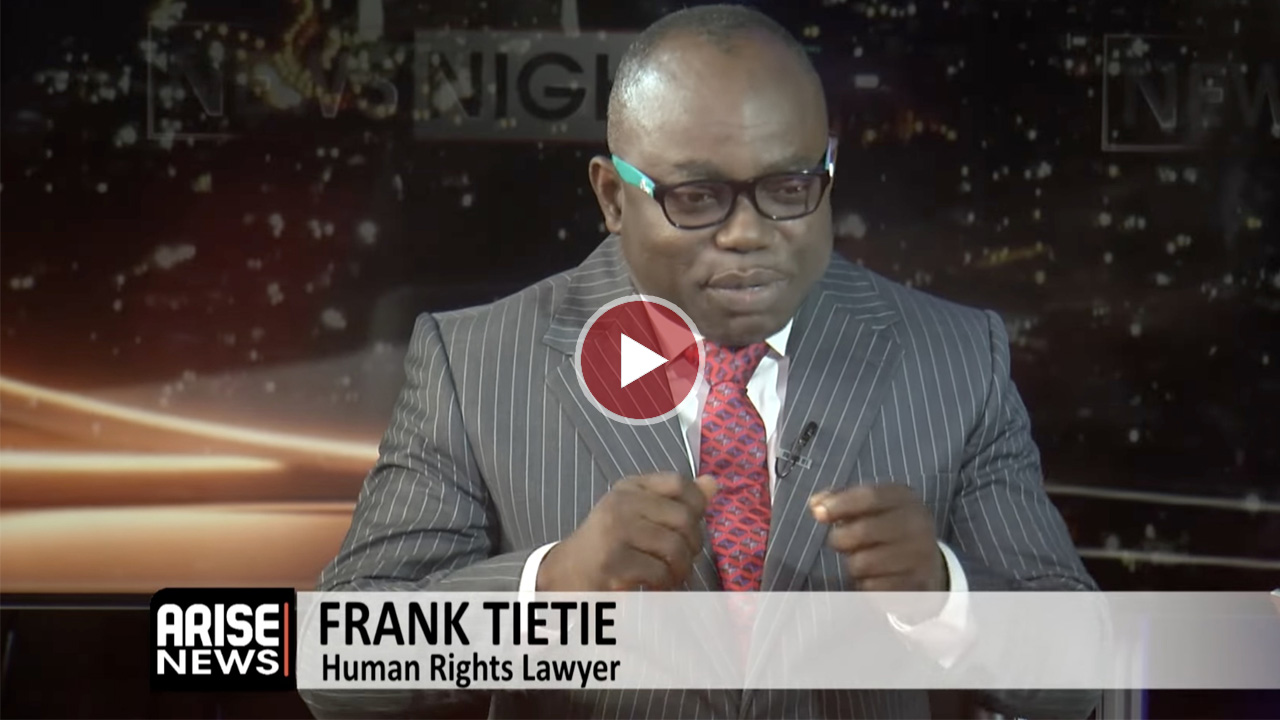

Human Rights Lawyer, Frank Tietie, has faulted the Federal Government’s decision to review President Bola Tinubu’s earlier-approved list of pardoned persons, saying the president has no constitutional power to reverse an act of mercy once sealed and communicated to the public.
Speaking in an interview with ARISE News on Wednesday, Tietie said the review “offends the powers of the president” under Section 175 of the 1999 Constitution, which grants the president exclusive discretion in exercising the prerogative of mercy.
“It offends the powers of the president for anybody to call for the review of an act of the president pursuant to Section 175 that has been sealed and communicated to the Nigerian public,” Tietie said. “It’s very offensive to the principle of presidential federalism for anybody to think that an act of the president can be reversed. It’s not possible.”
He argued that the president’s discretionary acts of mercy carry “a tone of finality” that cannot be reviewed, not even by the courts or by the president himself.
“When the president exercises discretion in his personal capacity, that act cannot be reviewed even by the courts or any other authority — not even the president himself,” he stated. “We cannot continually make a mockery of our presidential system as if we revel in a third-world style of governance.”
Tietie, however, acknowledged that a review could only be justified if there was evidence of fraud or misrepresentation in the advice given to the president before the list was approved.
“There could be a reason why that list could be reviewed only on the grounds of fraud or misrepresentation,” he explained. “If the persons who advised the president — whether from the Office of the NSA, the SGF, or the Chief of Staff — committed fraud or misrepresented facts, then the president can announce that for such reasons, which did not reflect his discretionary power, he is reversing it.”
He criticised the presidency for succumbing to public pressure rather than explaining the rationale behind the initial list.
“One would have expected the presidency to explain the reason why it gave out that list, not take the lazy approach of just yielding to public criticism,” Tietie said. “If that’s the case, the president should have also reversed the removal of fuel subsidy, the increase in electricity tariffs, and several unpopular loans. You don’t run a government that way.”
According to him, the president’s spokesman should have defended the decision, instead of “making a mockery of the presidency.”
“A presidency is not moved by public opinion before applying the seal of office. It’s about the protection of the exalted office of the president. You don’t subject it to public mood swings.”
Responding to suggestions that the review shows a “listening government,” Tietie dismissed that claim as unconstitutional.
“If we had a listening president, he would have reversed the subsidy removal and electricity tariffs,” he said. “At the time the president signed the first list, it was a completed act that he no longer had power to reverse. The courts will interpret this ultimately.”
He maintained that once pardoned, the beneficiaries became free citizens, and removing their names from a second list cannot invalidate the first act.
“Those persons are already pardoned by the president of the Federal Republic of Nigeria. The second list has no effect. They have legal cause to go to court and enforce what the president has already granted them,” he said.
Tietie stressed that the presidency’s actions could expose it to ridicule and unnecessary scrutiny.
“It’s unfortunate that this is happening because it exposes the presidency to ridicule and investigation. You don’t mess up the sovereignty of the country, which the president represents,” he warned. “When the president takes a decision, assume it’s based on information the ordinary man doesn’t have.”
Reacting to the decision to move the Prerogative of Mercy Secretariat from the Ministry of Special Duties to the Ministry of Justice, Tietie said the shift was largely unnecessary.
“The understanding of Section 175 is that the president himself decides whom to pardon,” he said. “The presidency must explain why it is reviewing the list — otherwise, the presumption is that fraud was committed somewhere. Who is that fraudulent person that inserted names the president didn’t approve and still applied the presidential seal?”
He called on investigative journalists to probe the process and speak to everyone on the original list.
“If we have proper investigative journalists, they should meet everyone on the first list and ask questions,” he said. “Deals may have been made, but there’s nothing wrong with that if it was in Nigeria’s best interest and within constitutional powers.”
Tietie concluded that protecting the sanctity of the presidency is essential for national stability.
“We must protect the presidency for the sake of our country’s future and stability,” he said. “Governance is not a popularity contest. You cannot reduce the presidency to a ping-pong of public opinion.”
Boluwatife Enome



